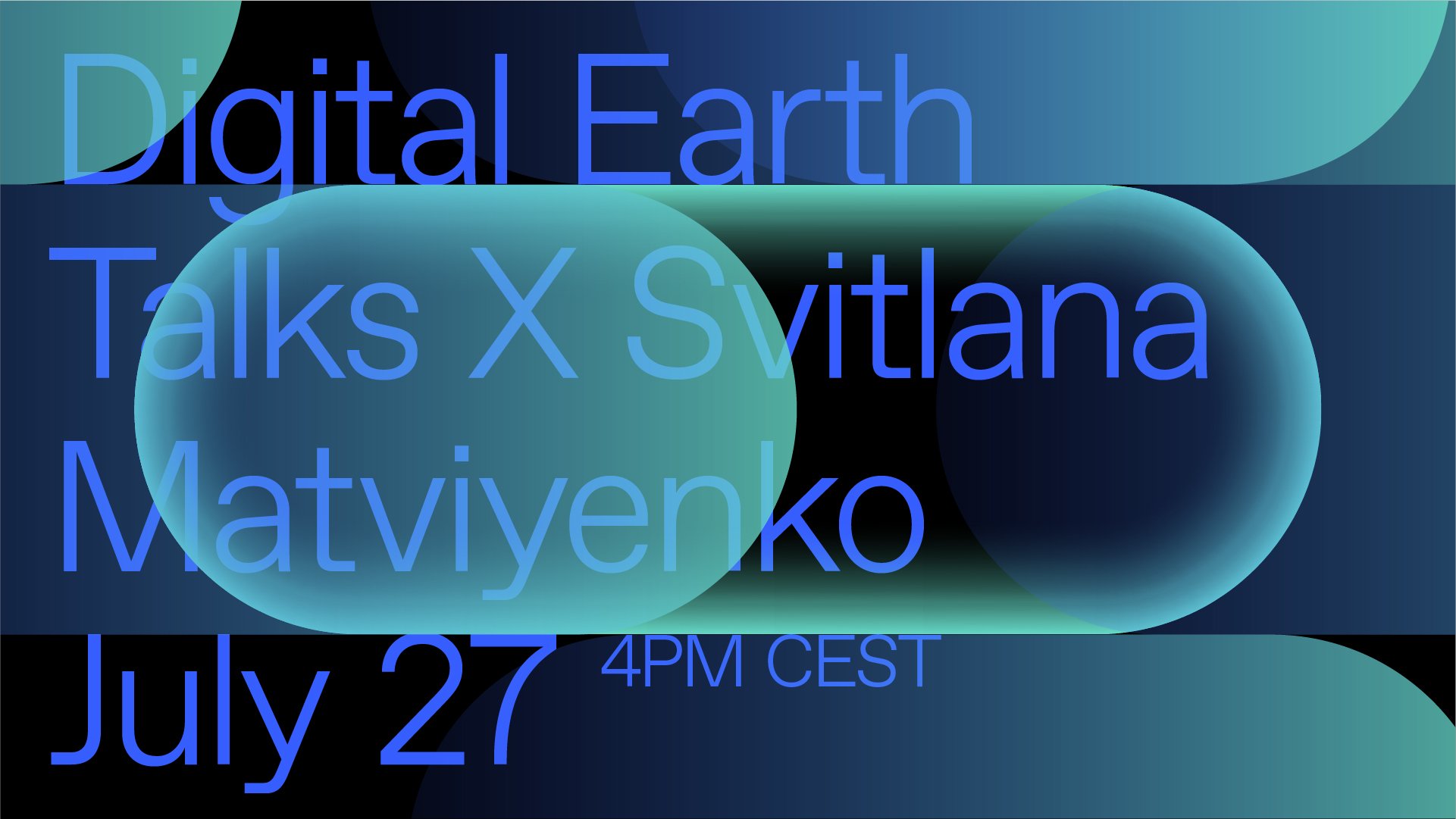Recap #1 Digital Earth Talks x Lukáš Likavčan
Our societies can change through consideration, and balance, of multiple cosmologies
written by Nora N. Khan and Digital Earth
In the first Digital Earth talk, the philosopher Lukáš Likavčan proposes that the imagining of a humane Digital Earth first demands a recognition of the cosmologies that drive our world in the present, in order to imagine a new cosmology for the future.
As Likavčan explains, cosmologies loom in the background of the social world, forming a nearly invisible second layer. Though largely unseen, they are enormously influential, determining the place and the roles that human beings take up within their respective concepts of the universe. Cosmologies further determine the ways that societies are organised. A primary cosmology driving the organisation of Western society, for instance, has been the metaphor of the universe as a giant machine, through which all actions obey laws of nature under God, the divine engineer. This cosmology laid the foundation for adherence to a clear hierarchy and distribution of power along it. One can trace the nation state and the divine right of kings to this precise cosmology.
Old orders must and should be replaced by alternative hierarchies and modes of organisation that privilege sustainability and position the planet not just as an entity to be controlled.
Likavčan went on to describe the natural diversity and range of disparate cosmologies. Since the cosmology of the ‘divine engineer,’ countless other cosmologies have emerged; the most significant successor – and one that Digital Earth critically addresses – may be that of cybernetics, informed by the rise of computation and systems design. Importantly, Likavčan notes that cosmologies do not act alone, but are supported by institutions, and exported and disseminated through them. This is evident in the countless ongoing colonial and neo-colonial projects unfolding under the banner of technology and technological progress, from mining operations in the developing world to plans for terraforming Mars.
Central to Likavčan’s argument is that we must discard cosmologies that are outdated, or harmful, that no longer serve the world, as it has evolved. In light of the violence of global capitalism, including ongoing and intensifying environmental collapse, Likavčan encourages jettisoning cosmologies – like ones that separate us from nature and align technology purely with logics of extraction – that no longer serve Earth and human beings on it. We need to invent new cosmologies that allow for wide-scale social change. Old orders must and should be replaced by alternative hierarchies and modes of organisation that privilege sustainability and position the planet not just as an entity to be controlled.
Likavčan is careful not to propose a strict protocol for forthcoming cosmologies, but argues that it necessarily should be cosmopolitan, holding a cosmic perspective. It needs to be informed by a range of ideologies, distilled into principles that can help societies address the wake and ruins of global capitalism. Further, it should cherish and speak to a wide range of global perspectives – the we in ‘We’ – and a multiplicity of knowledge traditions. Likavčan and the Digital Earth Fellows discussed and examined this part of the argument very carefully. They collectively questioned how such a shift to a new cosmology might take place. They debated how to surface necessary differences of competing philosophical traditions within a seemingly ‘universal’ metaphor such as a cosmology, which turns out to not be universal at all. The group explored, in great depth, the role of technology in perpetuating old and current cosmologies of power.
Recap Digital Earth Talks 2021
About Digital Earth Talks
How do we imagine a humane Digital Earth to come? Join the discussion and explore the visions of leading voices in art, tech, and philosophy from around the world.
Discover our past events here:










